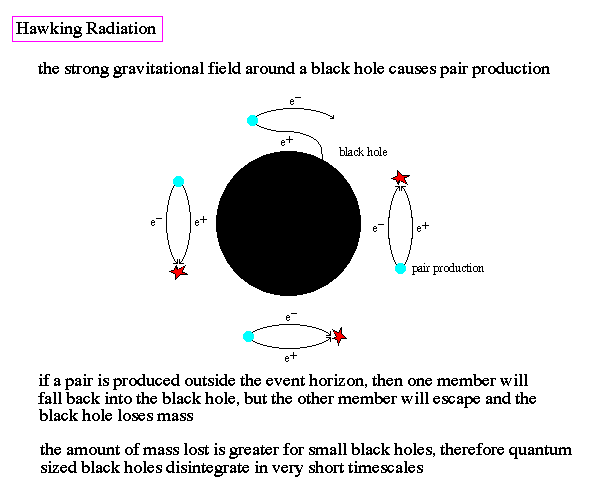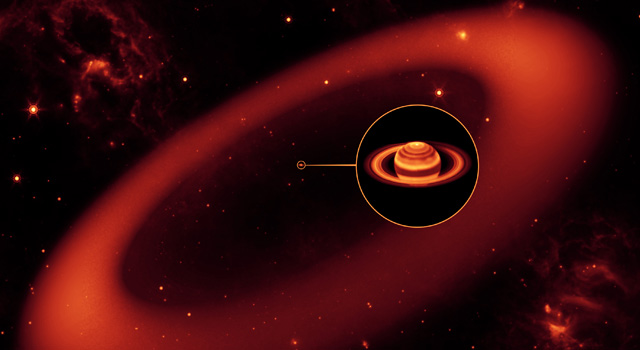This point about Hawking Radiation keeps bugging me a bit. I can understand how a particle/anti-particle could be easily split by twist and turn with minimum force, even two objects with a vacuum in-between can be separated just like that, but I can't see how one giant force could separate those two, like a giant fan would blow away one particle while it's neighbor would just keep hanging around. Even if its because it has an opposite direction, at the moment that other particle turns a bit it's in the same direction as the one pulled down. It would also be logic that they both get sucked in, because they have a relation and if one gets pulled down, it could pull the other one with her/him, unless there is an other force pulling on the other but then I can't see how a black-hole would evolve?
String-theorists, professor Samir Mathur and his colleagues from the Ohio-state University came up with this representation of black-holes, a stringy "fuzzball with apparently a giant torus": http://researchnews.osu.edu/archive/fuzzball.htm
Ok, perhaps HR is real, but than the anti-particle would attract electrons if I understand correct to form a new pair, but wouldn't this form a screen around the Black Hole and it would be like a giant gas-bubble full of those anti-particles a bit like Saturn even that planet has it's big phoebe-ring around it like that string-theory perception of a black hole and it just reflects sunlight. Also if you would let an apple fall into the black hole, according to Hawking Radiation at the event horizon half of it would fall in, while the other half keeps hanging around to create a new apple. Isn't it that case a Black hole the same as a planet ...
Note: I asked this question to a knowledgeable scientist and he told me: "I think your picture of the black hole is a bit simplistic ... saturn is not like a black hole, because particles falling on it hot the surface while in a black hole they would fall in .."
And on the side: physics prof Peter Higgs - of boson renown - being sternly critical of Hawking's methods: "I don’t think the way he does it is good enough, ... He puts together theories in particle physics with gravity ... in a way which no theoretical particle physicist would believe..."






